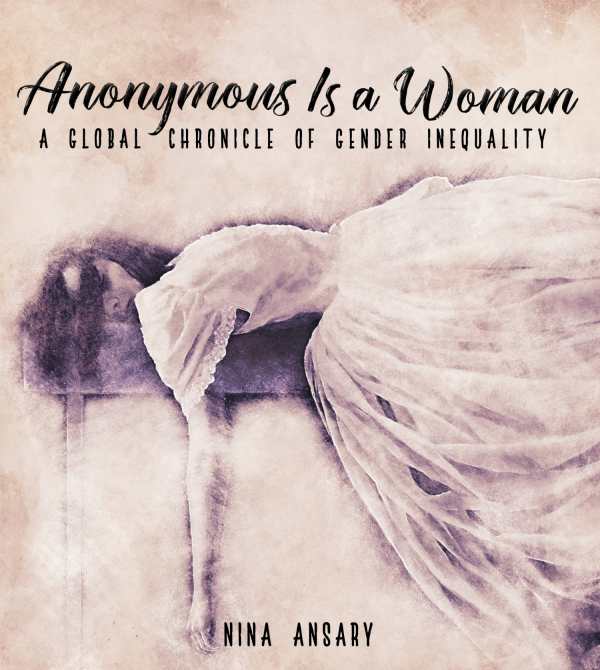Anonymous Is a Woman
A Global Chronicle of Gender Inequality
- 2020 INDIES Winner
- Silver, Women's Studies (Adult Nonfiction)
Insightful, compelling, and necessary, Anonymous Is a Woman profiles women who made important historical contributions without recognition.
Nina Ansary’s inspiring Anonymous Is a Woman analyzes how women’s achievements are ignored in society and covers the lives and works of fifty little-known, brilliant women across 4,000 years of history.
The book begins with an examination of the systems of power that it says have silenced women’s voices and contributions; it grounds feminist theory in women’s lives, asking why women’s historical voices are so often made anonymous. It then moves on to short biographies of women from across the globe, showing not only who they are but the lasting impact they had on the world in spite of their anonymity.
Positing that gender parity will be achieved only when women unite, the book presents startling statistics that indicate vast divides across the world, including in areas like women’s representation in the workforce, in politics, and as equal partners in marriage. The negative consequences of such disparities for societies and individuals are emphasized, as is the impact upon young girls who are searching for role models. To fill the gap, the stories of fifty women instrumental in changing the world, most without credit, are shared.
The included women are those not usually represented in similar anthologies. Among them is Cleopatra Metadora, a Greek physician who lived between 200 and 400 CE, who is acknowledged as the first woman author of a medical textbook on surgeries and women’s health; Ansary shows that her work is mirrored in modern scholarship. And Liang Hongyu lived in the twelfth century and served as a general during the Song Dynasty, a period when the subjugation of women was on the rise and practices such as foot binding limited the bodily autonomy of women.
The fifty women presented come from every continent save Australia and from across the spectrum of socioeconomic origins, religious practice, and areas of expertise. Some women were active in advancing the status of women; others pursued their passions without recognizing the greater meaning of their work. Whenever possible, links are drawn between these women and the men who benefited from their work: architect Mary Mahoney Griffin, for example, worked for and alongside Frank Lloyd Wright, and her ideas were used, unattributed, in Wright’s work.
The work is situated in the history of feminist theory, pointing out the strengths of the canon of feminist theory while criticizing much of it for being classist and failing to include the voices of women of color. Its biographies fill in such gaps in historical representation; they are rich and diverse, representing a cross section of historical women. The book’s analysis of gender is binary, though; there are not genderqueer people among the fifty examples, even though many such people may have been silenced because of misgendering or misunderstanding.
The text is accessible because of its conversational language and its habit of putting narratives in their historical context. Extensive endnotes provide additional resources and explanations of its analysis.
Insightful, compelling, and necessary, Anonymous Is a Woman profiles women from history who made important contributions to fields including science, literature, and social justice.
Reviewed by
Holly Jordan
Disclosure: This article is not an endorsement, but a review. The publisher of this book provided free copies of the book and paid a small fee to have their book reviewed by a professional reviewer. Foreword Reviews and Clarion Reviews make no guarantee that the publisher will receive a positive review. Foreword Magazine, Inc. is disclosing this in accordance with the Federal Trade Commission’s 16 CFR, Part 255.

